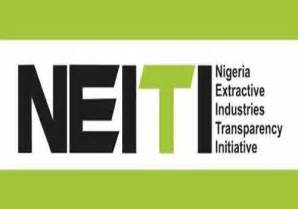The 2015 oil and gas industry audit released recently by the Nigeria Extractive Industries Transparency Initiative (NEITI) which covered a total of 76 entities made up of 54 oil and gas companies, 10 government agencies, seven power generating companies, the refineries, Nigeria Liquefied Natural Gas (NLNG) and Nigeria Gas Company (NGC), again, threw up a plethora of irregularities in the oil and gas industry
Despite recommendations made in previous audits dating back to 1999, the 2015 report still captured the prevalence of issues relating to under remittances, under payments, gas flaring, under assessment, inconsistent pricing methodology, breach of due process in waivers and approvals as well as general inefficiency in the industry.
Meanwhile, the report showed that total revenue which accrued to the federation and sub-national government from the oil and gas sector in 2015 was $24.791 billion. This is the least revenue government has earned from the sector in the last five years.
In 2011, total revenue from the oil and gas sector was $68.442 billion, in 2012 it was $62. 944 billion and in 2013 it came down to $58.079 billion. The revenue further dropped to $54.555 billion in 2014, before drastically dropping by 55percent to $24.791 billion in 2015.
The revenue decline nonetheless, is not a reflection of production figure but largely as a result of the prevailing crude price. For instance, total crude production in 2014 when government earned $54.555 billion was 798,542mbbls, a slight difference from the 2015 production figure of 776,668mbbls when $24.791 billion was earned.
Of the total crude production, the report showed that the Nigerian National Petroleum Corporation (NNPC) lifted a total of 313,336mbbls (inclusive of NPDC lifting of 15.31mmbls) in 2015, while companies lifted 467,093mbbls.
A section by section analysis of the report further showed an unreconciled difference of $28 million due to reconciliation differences in Signature Bonus, Education Tax, Pipeline Transportation Fee and the Niger Delta Development Commission (NDDC) Levy. It also showed that the national cash-call budget for 2015 was $7.359 billion while cash call funding for the year was $6.152 billion.
The report disclosed that the NNPC received $1.076 billion from NLNG as dividend, interest and loan repayment and also established an outstanding liability of $65.574 million for Royalty Gas against eight companies.
The total liability established against covered entities as a result of under assessments, delay in payments or outright default was $621 million and N418 million. There was also an unreconciled export sales receivable of N317 billion against the NNPC.
The report also showed that the current gas flared penalty charge of 10/1000mscf has not served as deterrent to gas flaring by companies. It submitted that if the government approved rate of $3.5 per 1000mscf had been applied in 2015, gas flared penalty fee would have been $1.111 billion as against the $12 million collected, which would have served more as deterrent.
Furthermore, it was revealed that in the year under review, eight companies namely Shoreline Natural Resources, Neconde Energy, ND Western, Platform, Newcross, Elcrest, Oriental and NDPR were granted tax holidays for five years straight instead of the normal three years at first instance, and thereafter additional two years after satisfying conditions set by the Nigerian Investment Promotion Council (NIPC) for the first grant. This was observed to be in contravention to IDA Act.
The independent audit also revealed that in the year under review, government owned oil firm, the NNPC, which acted as a player and regulator in the sector, “resulting to inefficiency in the management of the sector”, deducted at source “first line charges” in the sum of N490.535 billion.
A breakdown of the charges shows NNPC claiming N60.997 billion for “crude and product oil losses”, N112.818 billion for “pipeline repairs and maintenance,” and another N316.72 billion for “subsidy deductions.” The subsidy front line charge contravenes the institutional framework of the Petroleum Support Fund (PSF). The report also disclosed that the NNPC failed to remit to the federation account the sum of $16.477 million and another N1.597 billion paid by International Oil Companies (IOCs) as pipeline transportation fee.
The report also put the total value of crude loss as a result of theft and sabotage from upstream operations in the year under review at $1.428 billion while another $735 million and $90 million was equally lost to inconsistent application of pricing methodology for export crude oil and domestic crude oil respectively.






























